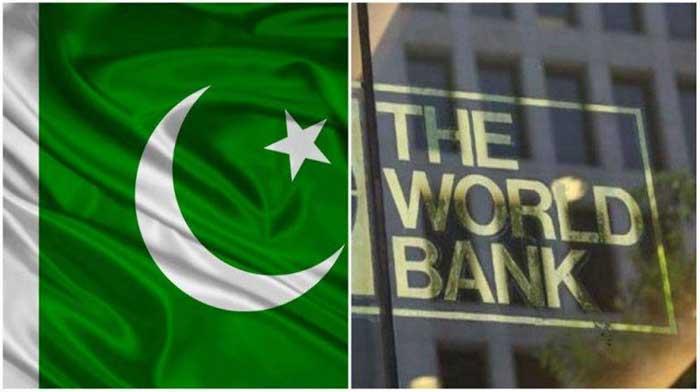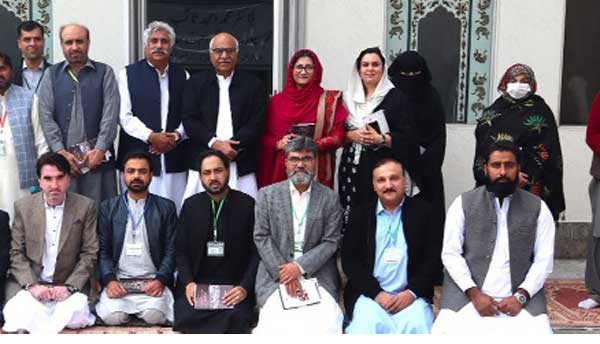
For the past five days, faculty and other staff from all universities in Azad Kashmir have been protesting. The government had announced a relief allowance for employees in Budget 2023-24, but it has not yet been provided to university staff. The university staff demands that the allowances given to employees in all other government departments since July 2023 should also be extended to university employees. On the other hand, university administrators argue that they cannot bear the burden of increased salaries in the current financial situation and propose to proceed without this allowance.
The primary cause of the financial crisis dates back to the 2017 eighteenth amendment, which devolved the administration of universities to the provinces. Since then, there has been no increase in the budget of the Higher Education Commission at the federal level. While federal and provincial/regional governments announce increases in salaries in their budgets each year, there is no corresponding increase in the HEC budget.
Meanwhile, new universities have been established in both Azad Kashmir and Pakistan. Fifteen years ago, Azad Kashmir had only one university with some departments in Mirpur, Kotli, and Rawalakot. However, in the past few years, all these have been granted the status of permanent universities. Additionally, a separate women’s university has been established in Bagh. Each new university has started offering education in various fields. Campuses of universities have been established in Haveli, Poonch, Bhimber, Hattian, and Athmuqam, and 48 colleges in the state have been allowed to conduct BS classes in various subjects. There are also three medical colleges, an open university, and a private university in Azad Kashmir. However, the population of this small state with 4 million inhabitants is not enough to support so many universities, campuses, and affiliated colleges.
The institutions operating under the names of degree colleges and postgraduate colleges have their entire expenses covered by the government budget. Therefore, they do not face any issues without receiving fees. In contrast, universities depend entirely on tuition fees or HEC funding.
As mentioned before, the HEC budget has been stagnant for the past six years, resulting in the entire burden of university expenses being transferred to tuition fees. This difference in fees causes students to prefer entering colleges over universities, further diminishing the influx of students into universities.
The Management of University Budgets has become a Double-Edged Sword. If fees are not increased, covering expenses becomes impossible; if increased, students opt for affiliated colleges instead of universities. In such a situation, where should university administrators turn?
Due to the aforementioned circumstances, universities are facing the most severe financial crisis. Departments within universities lack funds for essential matters, and now even the payment of full salaries to employees has become challenging. As a result, these institutions are heading towards a continuous decline.
However, the leaders of the state seem to be oblivious to the entire crisis. In the midst of this crisis, the Prime Minister is approving the establishment of two new universities. The question arises: when existing universities are already grappling with a severe financial crisis, what justification is there for establishing new universities? Will the government bear the expenses of these new institutions? If so, what fault lies with the existing universities that they are not being provided with such facilities? If these new universities are not given resources, what will be their financial future when existing universities are struggling to sustain themselves?
As the head of the state, the Prime Minister should have prioritized strengthening existing institutions instead of creating new ones. In Bhimber, where numerous colleges with existing BS classes are present, and where a campus of Mirpur University is already established, the Prime Minister should have focused on fortifying these institutions instead of creating a new one.
I want to convey to my readers that a student in a typical government high school costs the Azad Kashmir government approximately fifty thousand to one and a half lakh rupees annually. However, the annual expenses for university students under the government are zero.
The lack of government supervision over universities is justified by citing that the higher education is not included in fundamental human rights; therefore, the government is not bound to provide resources for it. If this principle is accepted, many questions arise: (a) If the government is not obligated to provide resources for higher education, why does it cover all expenses for degree colleges and postgraduate colleges throughout the state?; (b) If the government is not responsible for higher education, why are politicians so enthusiastic about opening new universities? They should be honest and tell the public that it is not the government’s responsibility to provide universities; (c) The capitalist system that established the principle that higher education is not a fundamental human need also has another principle: the government should not interfere in the market. When the government provides all means to colleges, it is essentially intervening in higher education. What justification do they have for this intervention?
In reality, our politicians have not understood the true meaning of this Western principle. Higher education is crucial for developed countries, which is why they attract students from around the world by offering scholarships worth hundreds of thousands of dollars. No government university in the United States or the United Kingdom receives less than 25% of its budget from the government.
We must understand that all universities are the state institutions, and the decline of universities is tantamount to the decline of state institutions. The government’s role is to strengthen state institutions rather than pushing them towards destruction. The government needs to immediately take note of the dire situation of universities and take prompt actions for their improvement.
Alongside this, the public is urged to demand job opportunities for their children from the government instead of new universities or degree colleges. If the government cannot provide all resources to a university in Muzaffarabad or Rawalakot, it cannot provide resources for national standard education in Halmat and Khoi Ratta. Instead of demanding a new university or degree college, people should demand scholarships and job opportunities for their children. This will be more beneficial for you and your children’s future.”



